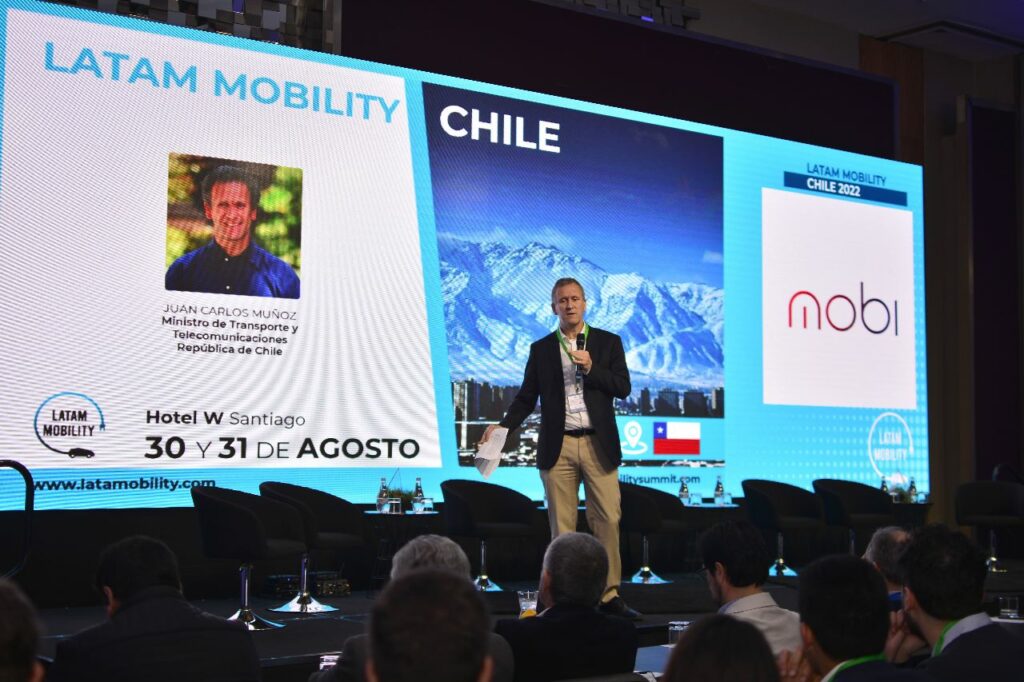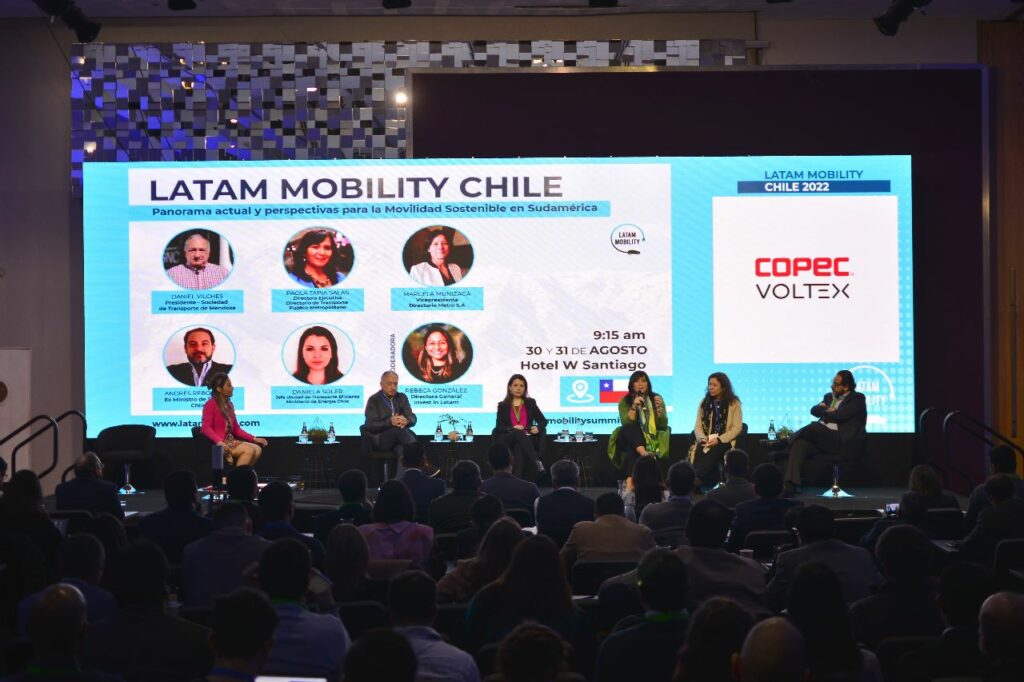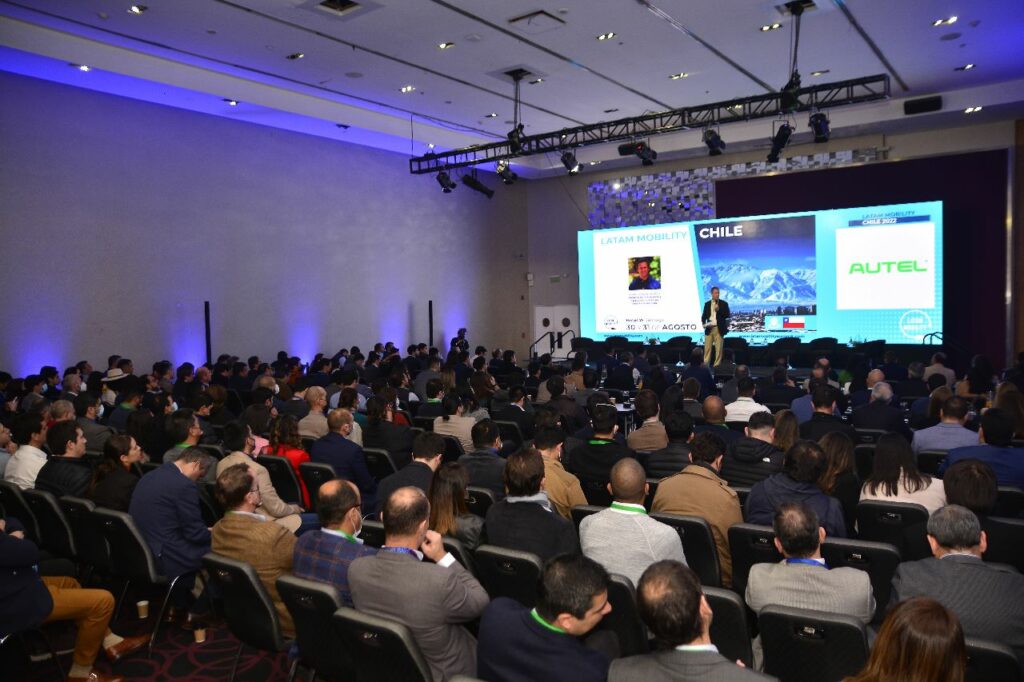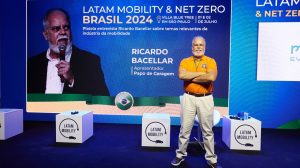Latam Mobility, the leading sustainable mobility community in Latin America, held the Latam Mobility: Chile 2022, a face-to-face meeting in the city of Santiago, with the participation of more than 500 professionals, together with representatives from the public and private sectors, who discussed mobility, transportation, renewable energies, charging infrastructure, clean fuels, mobility as a service and smart cities.
The event, which takes place on August 30 and 31 at the W Santiago Hotel, was attended by the Minister of Transport and Telecommunications of Chile, Juan Carlos Muñoz, who was in charge of kicking off two days of discussions where the challenges, opportunities and plans that are being carried out in the different sectors of the country and the region are addressed.
“Recently, we added 95 electric buses of a fleet of 992 that are committed and will arrive in the coming months, which will double the current supply in the Public Transport Network System of the Santiago region, making us the city with the most emission-free vehicles after China in the public network,” emphasized the minister.
The minister explained the progress being made in the country in relation to carbon emission reduction policies, which take the planet 80 years to absorb. “We have acquired important commitments, such as having 100% of public transport with low emissions by 2040 and the sale of non-polluting vehicles by 2035“.
In addition, Muñoz indicated that the plan is broader: “We are organizing a National Railway Development Plan; new Metro lines that include 2,000 kilometers in tracks, together with 1,000 kilometers in pedestrian tracks. In addition, port modifications are being made to adjust structures to the needs of green hydrogen and clean energies, as well as regulations for the conversion of vehicles from combustion to electric”.

Immediate Challenges
Afterwards, the first panel “Current panorama and perspectives for Sustainable Mobility in South America” began, with the participation of Paola Tapia Salas, Executive Director of the Metropolitan Public Transport Board; Marcela Munizaga, Vice-President of the Metro S. A. Board; Andrés Rebolledo, Vice-President of the Metro S. A. Board; Daniela Soler, Head of the Efficient Transport Unit of the Ministry of Energy Chile, and Daniel Viches, President of the Transportation Society of Mendoza, under the leadership of Rebeca González, General Director of Invest in Latam.
Andrés Rebolledo, former Minister of Energy of Chile, explained that an important step has been taken in electromobility, thanks to the global goals that summarize the needs. However, he considers that “regulatory reforms must be promoted, not only to strengthen electromobility, but also to go further, such as strengthening the country’s electricity grid to meet the new needs”.
On the other hand, Rebolledo indicated that one of the fundamental points to promote sustainable mobility in the country is “to generate incentives, such as subsidies or tax exemptions to encourage the required transformation. We must reflect on the immediate needs to meet the objectives”.
For her part, Marcela Munizaga, vice-president of Metro S.A., said: “The challenges are from all areas, but one of them is to increase the number of users of low-emission public transport, because it is essential to meet the climate objectives”.
“A key issue towards sustainable mobility is that there is governance between the regions and the different governmental entities; as well as ordering regulations and planning, seeking common objectives, to avoid the complexity of reversing what has been done”, said Munizaga.

Working Together
The meeting was attended by the Metropolitan Public Transport Board, through its executive director, Paola Tapia Salas, who explained that in 2017 the Electromobility Strategy was developed, which was renewed in 2021, but there is still work to be done. “First, we must consolidate again the trust of users, who were at four million before the COVID-19 pandemic, and are currently at two million.”
Tapia said that we must believe in the subsidy for users, improve infrastructure and prioritize public transportation to meet the programmed objectives. In addition, he pointed out that “strategic communication is essential to publicize the benefits of electromobility, as well as technology, which must be at the service of the needs”.
Daniela Soler, Head of the Efficient Transport Unit of the Chilean Ministry of Energy, pointed out that the transport sector is the second largest energy consumer in Chile, with 36%, which implies an important task to implement the change of systems. “Electric vehicles are seven times more efficient than internal combustion vehicles, and by 2050 they would represent 20% of the solution.”
“To follow the proposed path and achieve technological change, the different governmental entities must work together to break down barriers and move towards electromobility. We must take into account the infrastructure and technology that are fundamental to achieve the goals. There are no excuses to achieve the transition,” said Munizaga.
Finally, Daniel Viches, president of the Transportation Society of Mendoza, Argentina, indicated that his province understood the need to move towards the transition. “Statutes were created that go towards clean energies, which prompted the purchase of 18 electric buses, along with two additional ones recently.”
Viches explained that despite the country’s complex situation, the province has reached other milestones, such as having doubled the Metrotranvía route; the more than 34 kilometers of Trolleybuses that were added to the system; more than 250 kilometers of the Shared Bicycle System (SBC), and 20 natural gas buses and the installation of the first charging station of the energy vector.




